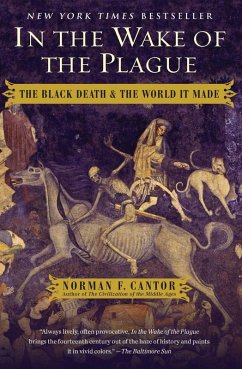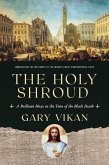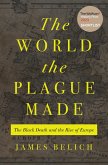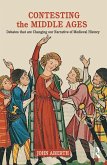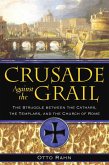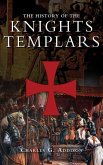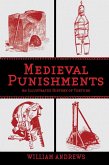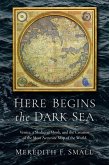Norman Cantor, the premier historian of the Middle Ages, draws together the most recent scientific discoveries and groundbreaking historical research to pierce the mist and tell the story of the Black Death afresh, as a gripping, intimate narrative.
In the Wake of the Plague presents a microcosmic view of the Plague in England (and on the continent), telling the stories of the men and women of the fourteenth century, from peasant to priest, and from merchant to king. Cantor introduces a fascinating cast of characters. We meet, among others, fifteen-year-old Princess Joan of England, on her way to Spain to marry a Castilian prince; Thomas of Birmingham, abbot of Halesowen, responsible for his abbey as a CEO is for his business in a desperate time; and the once-prominent landowner John le Strange, who sees the Black Death tear away his family's lands and then its very name as it washes, unchecked, over Europe in wave after wave.
Cantor argues that despite the devastation that made the Plague so terrifying, the disease that killed more than 40 percent of Europe's population had some beneficial results. The often literal demise of the old order meant that new, more scientific thinking increasingly prevailed where church dogma had once reigned supreme. In effect, the Black Death heralded an intellectual revolution. There was also an explosion of art: tapestries became popular as window protection against the supposedly airborne virus, and a great number of painters responded to the Plague. Finally, the Black Death marked an economic sea change: the onset of what Cantor refers to as turbocapitalism; the peasants who survived the Plague thrived, creating Europe's first class of independent farmers.
Here are those stories and others, in a tale of triumph coming out of the darkest horror, wrapped up in a scientific mystery that persists, in part, to this day. Cantor's portrait of the Black Death's world is pro-vocative and captivating. Not since Barbara Tuchman's A Distant Mirror have medieval men and women been brought so vividly to life. The greatest popularizer of the Middle Ages has written the period's most fascinating narrative.
Dieser Download kann aus rechtlichen Gründen nur mit Rechnungsadresse in A, B, BG, CY, CZ, D, DK, EW, E, FIN, F, GR, HR, H, I, LT, L, LR, M, NL, PL, P, R, S, SLO, SK ausgeliefert werden.

